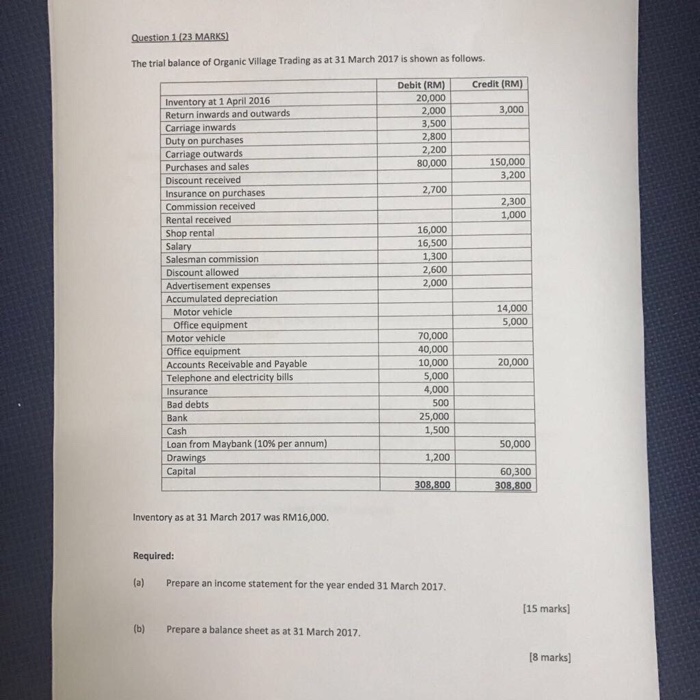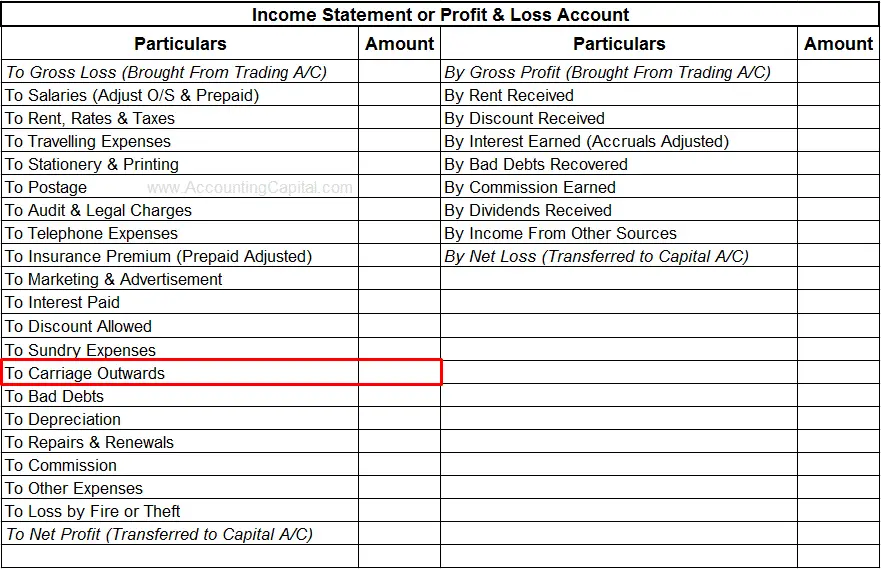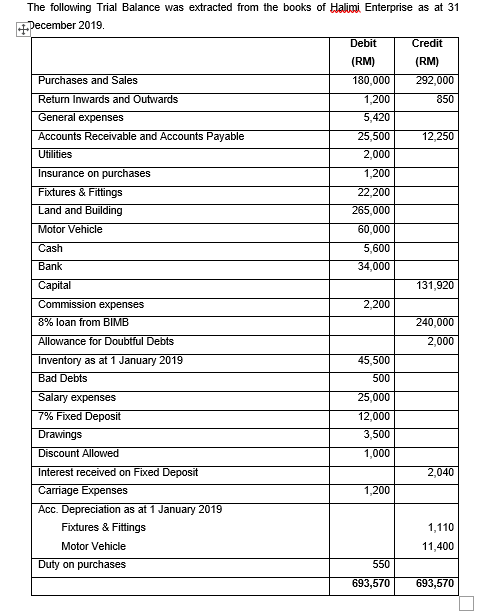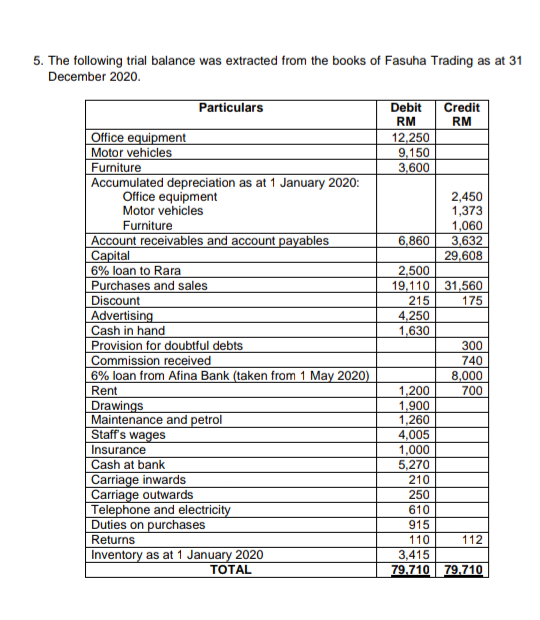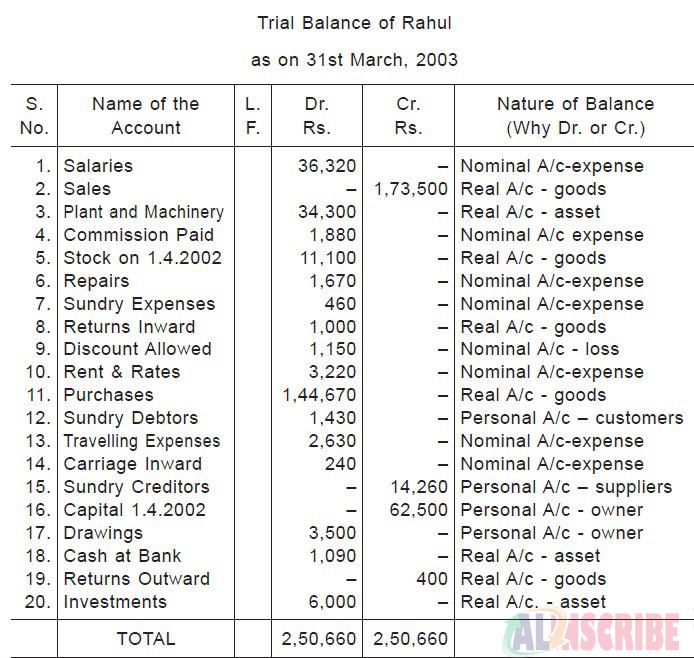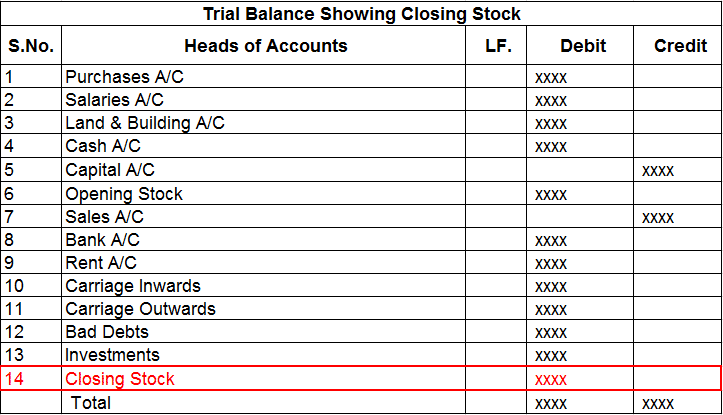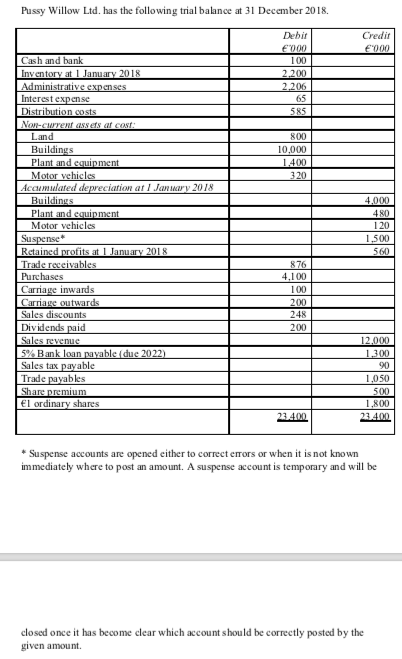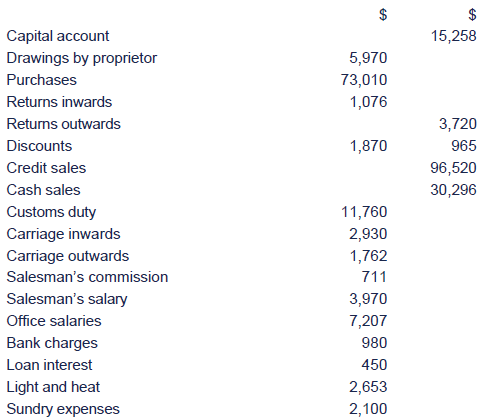Ideal Carriage Outwards Debit Or Credit In Trial Balance

This means the sum of the debit entries should be.
Carriage outwards debit or credit in trial balance. Start studying Trial Balance - Debit or Credit. 15 Where are the balances of carriage inwards and carriage outwards shown in the trial balance. Debit column 46 800 Credit column 39 700 The following errors.
Carriage outwards is also referred to as freight-out transportation-out or delivery expense. Carriage inwards also termed as transportation inwards or freight inwards is defined as the costs that are incurred towards the freight and transportation of goods from the warehouse of the supplier to the place of buyers business and it is treated as a direct expense and is always reflected on the debit Dr side of the trading account and in most of the cases it is the buyer who is responsible for paying off. The trial balance must have all aggregated debits and credits equal.
It is treated as a contra-expense transaction. Here is a list of all major type of accounts in a business and their usual ledger balances. Carriage inwards in trial balance and Carriage outwards in trial balance are both treated as just another expense.
Carriage outwards is the sellers expense to transfer the goods to the customer. Trial balance at 28 February 2021 Debit Credit RM RM Return outwards 13000 Machinery 34000 Salaries 17200 Trade Payables 33000 Cash in hand 40000 Carriage inwards 6000 Rent received 3000 Discount allowed 2000 Purchases 100000 Other Payables 20000 Trade receivables 15000 Carriage outwards 5000 Capital 53200 Building 18000 Return inwards 3000. Carriage outwards is an expense and has a debit balance.
Carriage outwards is not part of the cost of goods sold Example of Carriage Outwards. Both carriage inwards and carriage outwards or debited in the trial balance. Carriage inwards in trial balance and Carriage outwards in trial balance are both treated as just another expense.
The primary report used by accountants is the trial balance. It is selling expense and therefore an indirect expense. Return outwards holds credit balance and is placed on the credit side of the trial balance.

